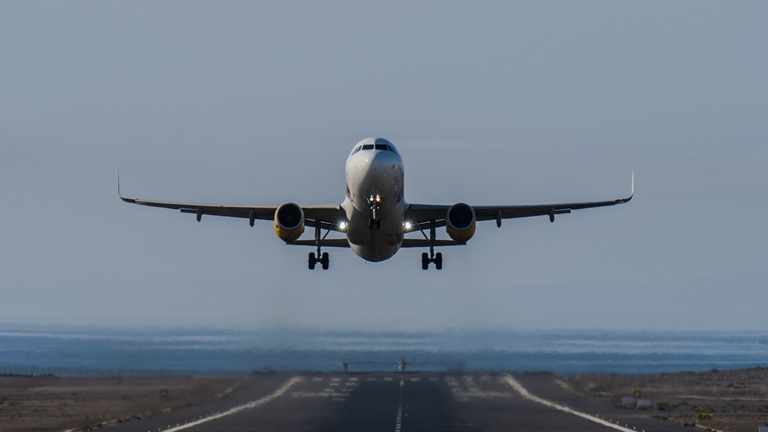April 21, 2025
Mizzou researchers are taking their experience on the road to the airport.

At Mizzou Engineering, we translate ideas into actions, solving real-world problems and making the world a better place.
Researchers at the Mizzou Asphalt Pavement and Innovation Lab (MAPIL) have been working on making more durable and environmentally friendly asphalt surfaces. Tested on busy highways, the team’s newest recipe has been a success.
Now, with a grant from the Federal Aviation Administration (FAA), the researchers are investigating whether airfield pavements could be made from a similar mix of post-consumer materials.
“The recipe for asphalt is just aggregate — rocks and bits of old asphalt pavements — and binder, which comes from petroleum,” Punyaslok Rath, an assistant research professor in the Department of Civil and Environmental Engineering, said.
“For a long time, civil engineers have added a synthetic polymer to the binder to the asphalt mixtures stronger and last longer,” Rath said. “At MAPIL, we’ve worked towards replacing that polymer with ground tire rubber and waste plastics that would otherwise end up in landfills.”
Testing new pavement to a higher standard
Airfield pavements support heavier loads than highways — think 100-ton airplanes vs. 40-ton semis — but highways are busier. Plus, airfield loads are concentrated on the wheel paths, while the rest of the pavement doesn’t see much loading.
“Most of the distresses we see in airfield pavements are environment-related, like thermal or low-temperature cracking,” Bill Buttlar, the Glen Barton Chair in Flexible Pavements in Civil and Environmental Engineering, said.
But even a small fault in an airfield pavement can have disastrous consequences. When runways crack, the resulting loose debris can become airborne, damaging engines, propellers, fuselages, tires and control surfaces.
“If your pavement has a lot of cracking, it has to be swept constantly,” Buttlar said. “So pretty soon you’re better off resurfacing.”
Repaving airfields is expensive. In 2024, the FAA awarded Columbus Airport in Georgia a $24.4 million grant to reconstruct a 1.3-mile runway. The cost of paving a mile of asphalt highway ranges from $1 million to $5 million.
“If there’s a crack or a pothole in the road, you can just close the lane and reroute traffic while MoDOT repairs it,” Buttlar said. “You can’t do that at an airport without major financial losses.”

All this motivates airports to find more resilient pavements. Which is where Buttlar and Rath come in. Based on their experience with roadways, the researchers believe that incorporating recycled plastics and tires into asphalt mixtures may be the answer.
The researchers are currently working with Oliver Giraldo-Londoño to create computer simulations that will model how pavements behave over time, factoring in stress from loads and weather.
“In the long term, your airfare probably won’t go down, but building runways will get a little cheaper,” Rath said.
Collaboration leads to success
For the engineers, one of the highlights of working at Mizzou Engineering has been the collaboration with the Missouri Water Center and researchers elsewhere on campus.
“For me, the hallmark has been having all these faculty labs and offices all in one building,” Rath said.
Buttlar emphasizes the importance of innovation.
“If we keep driving towards it, we will eventually create something that truly changes the game,” he said. “Like a smoother, quieter road that lasts longer so we can spend our money on something else.”
Buttlar added that his work with Rath is fulfilling Mizzou’s mission to share the benefits of a world-class research university with ordinary Missourians.
“At Mizzou, our number one customer is the Missouri taxpayer,” he said. “We are driven to make life better for travelers throughout the state.”
Join our cutting-edge research into asphalt and surface sustainability. Choose Mizzou Engineering!